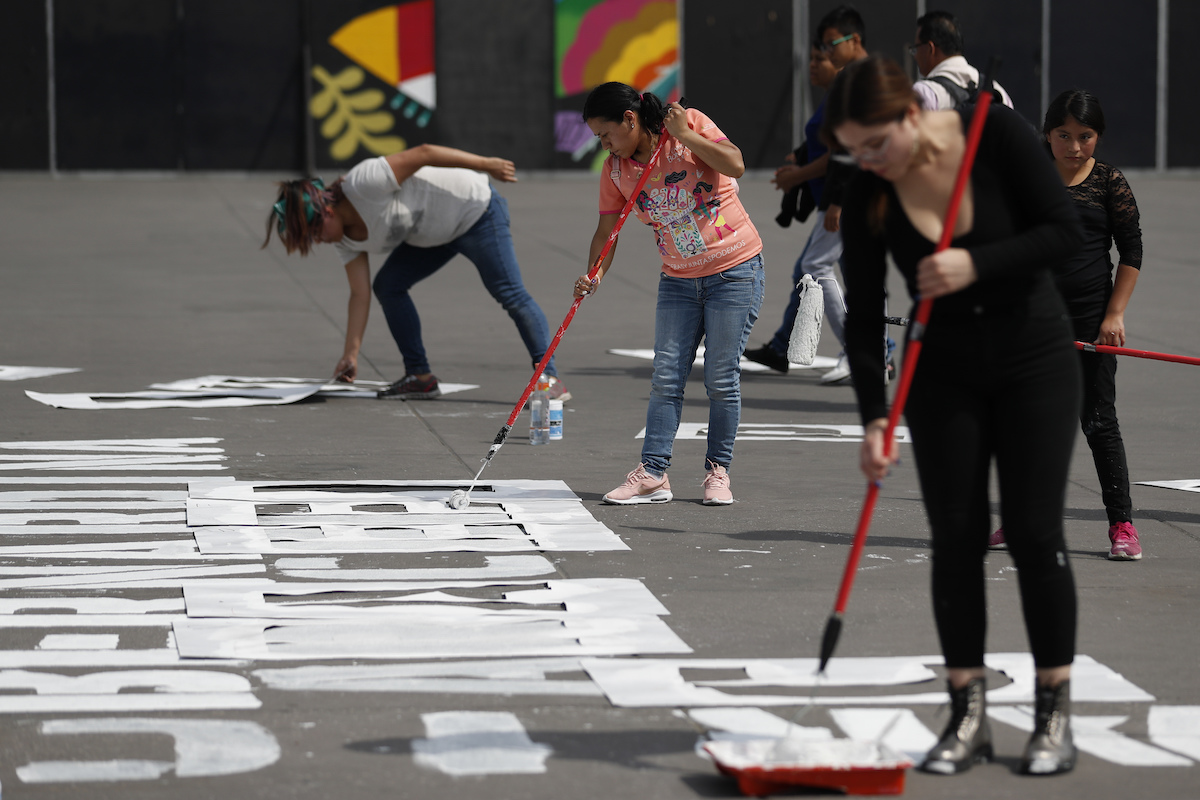

Women work to paint the names of some of more than 3,000 victims of femicide on the plaza of the Zócalo in Mexico City, on International Women’s Day, Sunday, March 8, 2020. (AP Photo/Rebecca Blackwell)
By AMY GUTHRIE and ALICIA HERNÁNDEZ, Associated Press
MEXICO CITY (AP) — Adriana. Dulce. Paola. Nayeli. Ingrid. María—lots of Marías. These are just some of the names of the thousands of women killed each year in Mexico, often by their intimate partners.
Dozens of women carpeted Mexico City’s central Zócalo square Sunday with victim’s names in white block letters as part of protests against gender violence on International Women’s Day. Thousands of women later marched, led by the mothers of murdered girls.
“I don’t want to be the next one, and I don’t want my mother to be the next one,” said Ana Paula Santos, a 21-year-old public university student.
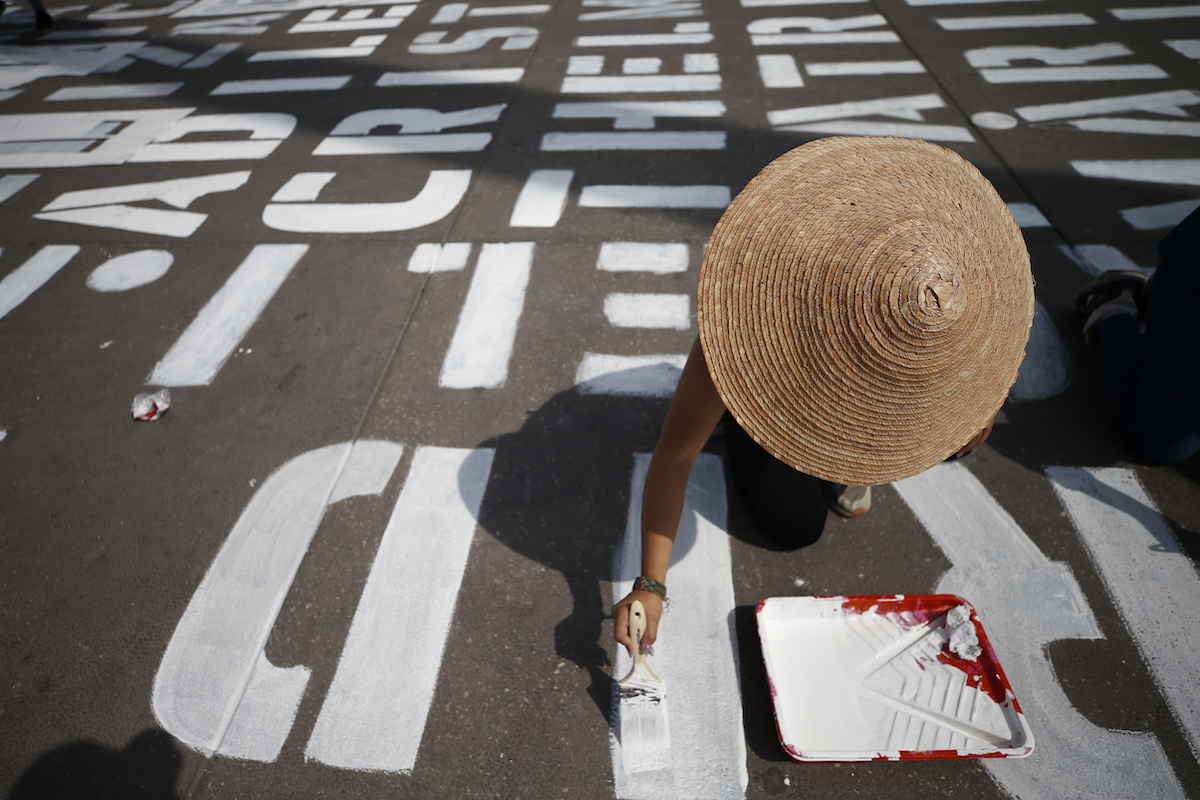

A woman helps paint the names of some of more than 3,000 victims of femicide on the plaza of the Zócalo in Mexico City, on International Women’s Day, Sunday, March 8, 2020. (AP Photo/Rebecca Blackwell)
Government data shows that 3,825 women in Mexico met violent deaths last year, 7% more than in 2018. That works out to an average of more than 10 women slain each day, making it one of the most dangerous countries in the world for females. Thousands more have gone missing without a trace in recent years.
“We decided it was a moment to put them into numbers—all those women who are missing, who they’ve taken from us,” said Sofía De Robina, a lawyer with the Miguel Agustín Pro Human Rights Center.
De Robina, together with friends and activists, compiled a list of names of women who have been killed in Mexico since since 2016. The idea was to put those names on the asphalt as a memorial, but also to give them a voice in the day’s protest.
Murders of women in Mexico are often accompanied by sexual violence and stunning brutality. Some women are burned. Some are mutilated.
Authorities seem incapable of preventing or properly investigating the crimes, very few of which result in convictions.
As De Robina talked, children and women passing by offered to pick up a paint brush and help.
The names on her list came from public records of deaths that appear to fall in the category of femicide, meaning those women’s killings carried marks of hatred for the female gender. De Robina and her collaborators found 3,300 apparent femicides in all.
Criminal charges of femicide carry heavier sentences than other homicides in Mexico.
Protesters tinted red the water of the fountain to the Roman goddess Diana in Mexico City, and also the water of a fountain to the Roman goddess of wisdom, Minerva, in Guadalajara.
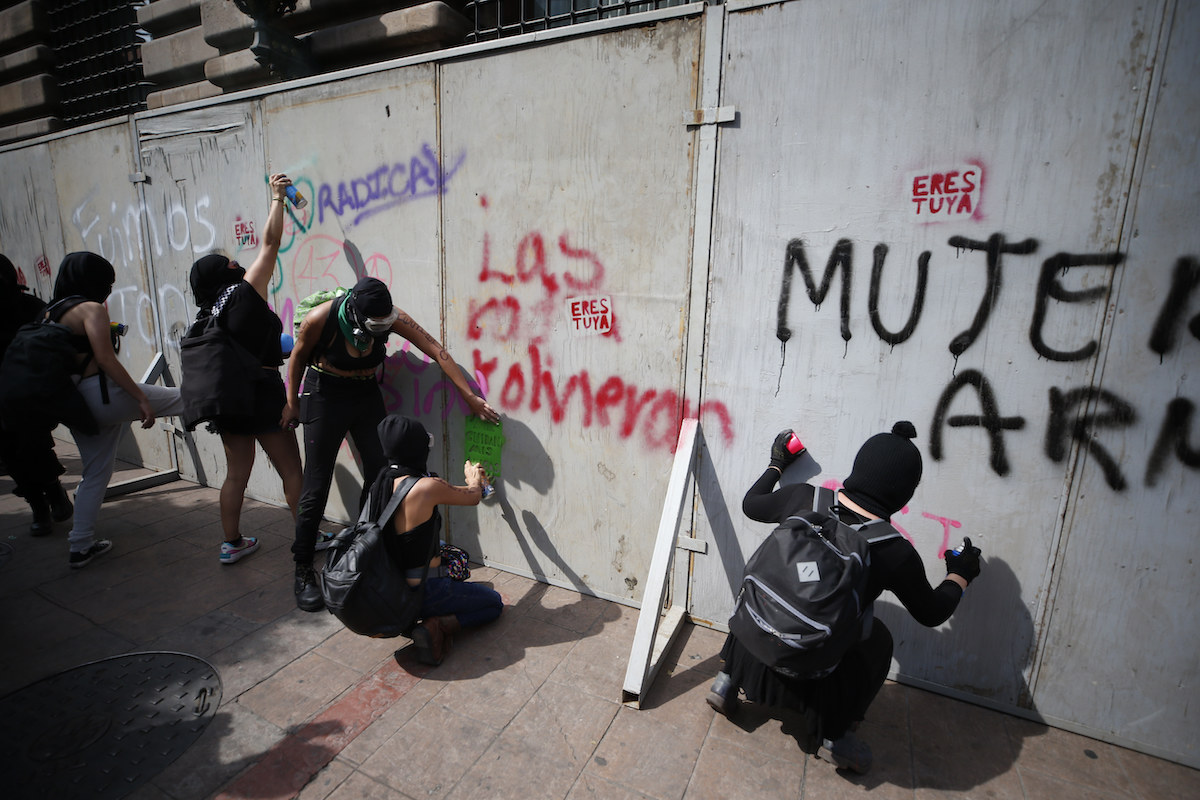

Demonstrators spray graffiti on a barricade during a march for International Women’s Day in Mexico City, Sunday, March 8, 2020. (AP Photo/Rebecca Blackwell)
María de la Luz Estrada, coordinator of the National Citizen’s Observatory on Femicide, said more women have taken to the streets in recent years because the assaults and killings are “increasingly more alarming.”
On Sunday, housewives, students and mothers with small children on their shoulders took to the streets of Mexico City wearing purple shirts, bandanas and hats.
They carried signs saying, “We are the heart of those that no longer beat” and “I’m marching today so that I don’t die tomorrow.”
Bands of masked women smashed windows, lit fires and spray painting messages on buildings. Many in the crowd cheered at the sight of vandals spraying messages like “We’re fed up.”
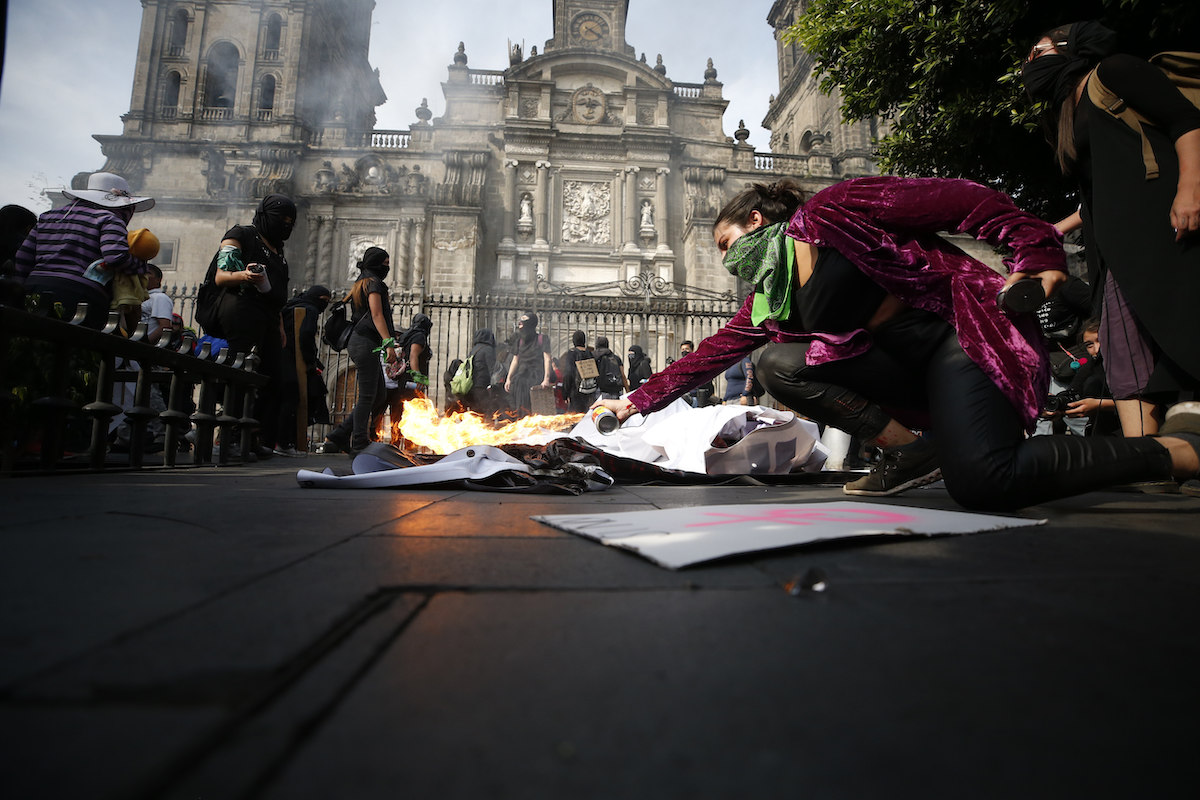

A demonstrator lights a fire in front of the Metropolitan Cathedral during an International Women’s Day march in Mexico City, Sunday, March 8, 2020. (AP Photo/Rebecca Blackwell)
Enriqueta Diego, a mother of two girls and a boy from the central city of Puebla, said she joined the march in the hopes of improving security for all the women in the country.
“They’re killing us with total impunity,” said the 52-year-old.
Afterward women taped their protest cards onto the fences around the country’s Senate. First-time protesters wrote names, contact phone numbers and even blood types on their arms as a security measure.
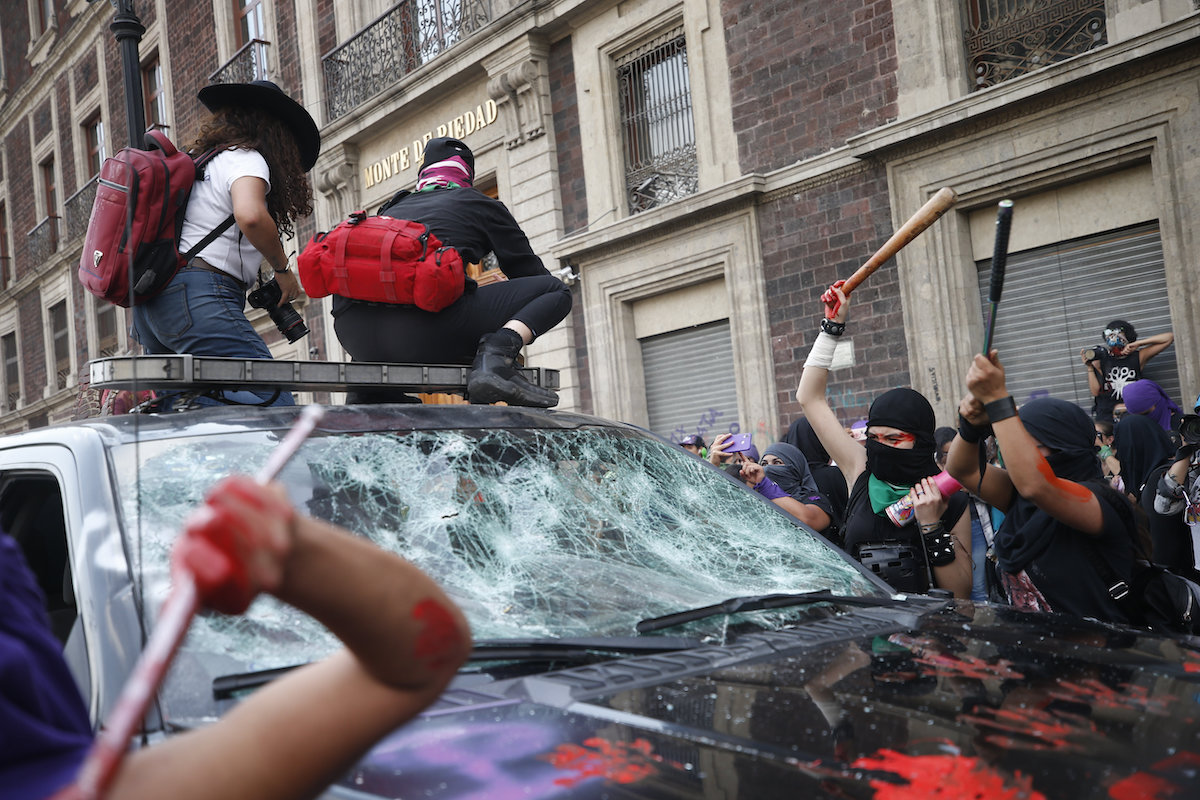

Demonstrator attack a pick-up truck belonging to the fire department during an International Women’s Day march in Mexico City’s main square, the Zócalo, Sunday, March 8, 2020. (AP Photo/Rebecca Blackwell)
Natalia Olalde, an 18-year-old university student with a purple bandana tied around a thigh, said she marched because she’s fed up with the lack of justice for women in the country.
She’s studying business administration but worries she’ll face sexual harassment once in the workforce.
“We want to be free and safe,” said Olalde.
***
Associated Press journalist Rebecca Blackwell contributed to this report.



[…] inequality and exploitation on International Women’s Day, with the mothers of murdered girls leading a march in Mexico City and participants in Paris inveighing against the “virus of the […]